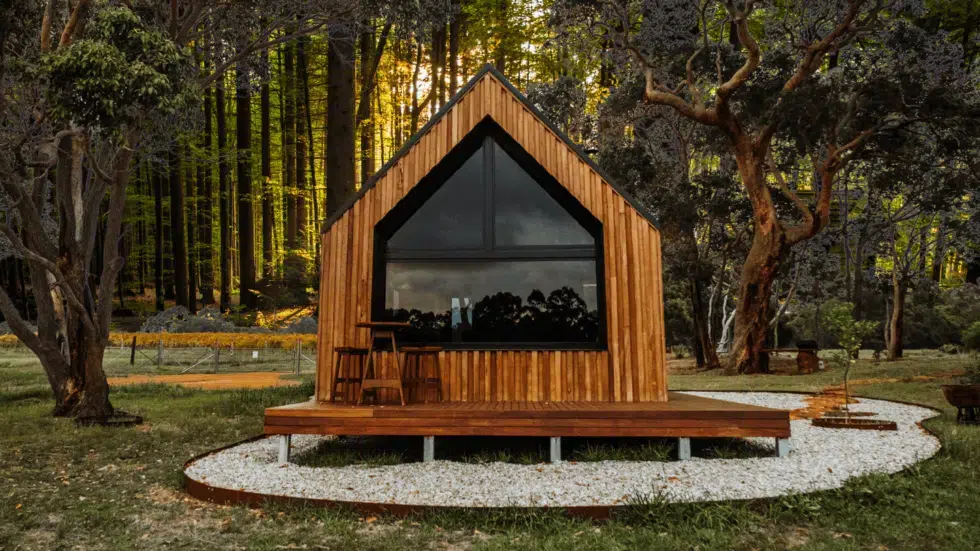Becoming a successful real estate agent involves more than increased effort; it requires making intelligent choices. One of the wisest decisions you can make is narrowing your focus within the real estate industry.
While initially, specializing in one particular real estate field may appear limiting, this approach offers numerous advantages.
Concentrating your efforts in a specific sector enables you to direct your attention, create exact and impactful communications, position yourself as a trusted authority, and expand your real estate business.
Most Profitable Real Estate Niches
The profitability of real estate niches can vary significantly based on location and local market conditions.
Some of the most profitable real estate niches include luxury real estate, commercial real estate, age-restricted communities, and investment properties.
However, the success of any niche depends on factors like demand, economic trends, and population growth in a given area. Let’s take a look at some top real estate niches.

Top Real Estate Niches: Luxury
Catering to high-end clientele seeking exclusive properties is a niche that offers substantial rewards for real estate agents.
Out of all the top real estate niches, being in the luxury sector means REALTORS must use innovative marketing strategies.
To become successful in the luxury real estate niche, REALTORS use innovative strategies to effectively market themselves while selling properties with premium features, unique designs, and extravagant amenities. Understanding the nuances of this market, from high-net-worth clients to luxury property trends, can lead to substantial commissions.
High-Net-Worth Clients
Real estate agents who specialize in this niche develop a deep understanding of the unique needs of affluent clients. They recognize the importance of discretion, privacy, and personalized service when working with these individuals, often building long-term relationships based on trust and confidentiality.
Premium Features
Luxury properties are characterized by their premium features, which set them apart from standard homes. REALTORS in this niche have an eye for identifying and promoting these features, including unique architectural designs, high-end finishes, custom-built elements, home automation systems, private theaters, wine cellars, and expansive outdoor spaces with luxurious amenities like infinity pools and outdoor kitchens.
Unique Designs
Luxury properties often boast one-of-a-kind designs created by renowned architects and interior designers. Real estate agents appreciate the artistry and craftsmanship that goes into these properties and can effectively convey the value of such designs to potential buyers.
Extravagant Amenities
Exclusive properties frequently come with extravagant amenities that enhance the quality of life for their occupants. Real estate agents in this profitable niche can showcase these amenities, including spa-like bathrooms, wellness centers, home gyms, game rooms, and private golf courses or helipads.
Local Market Expertise
Real estate agents in this niche are experts in their local markets. They are attuned to the most exclusive neighborhoods, sought-after addresses, and upcoming luxury developments. This knowledge allows them to guide clients to the most desirable locations that align with their lifestyle preferences.
Global Reach
Luxury real estate often attracts international buyers and sellers. Real estate agents in this niche often have a global reach and can connect affluent clients with luxury properties worldwide. They may also collaborate with international real estate networks to expand their reach and serve the needs of a global clientele.
Trends in Luxury Real Estate
The luxury real estate market is not static; it evolves. REALTORS stay informed about emerging luxury property trends, such as sustainable and eco-friendly features, wellness-centric designs, and smart home technologies. They adapt their marketing strategies and property recommendations to stay ahead of the curve.
Exceptional Marketing
Selling luxury properties requires exceptional marketing strategies. REALTORS in this niche use high-quality direct marketing postcards, photography, video tours, and virtual reality experiences to showcase properties to potential buyers. They also leverage their connections in the luxury sector to reach affluent clients through exclusive events and partnerships.
Specializing in luxury real estate is a niche that demands a deep appreciation for luxury living and a commitment to delivering the highest level of service. Real estate agents who excel in this field understand the intricate needs of high-net-worth clients and possess the marketing skills to showcase premium properties effectively. By mastering the art of luxury real estate, REALTORS can earn substantial commissions and establish themselves as the go-to agent in exclusive real estate transactions.

Top Real Estate Niches: New Construction
New construction projects allow agents to work closely with developers, builders, and buyers. Successfully navigating this niche involves a deep understanding of the construction process, local building codes, and the ability to match clients with properties that align with their preferences.
Construction Process Expertise
Being one of the top real estate niches to be in, agents working with new construction must be well-versed in the entire home building process, from concept and design to project completion. They understand the various construction phases, including site preparation, foundation work, framing, interior finishing, and landscaping. This knowledge allows them to guide clients through building or buying a newly constructed home, ensuring a seamless experience.
Local Building Codes and Regulations
Local building codes and regulations play a pivotal role in new construction projects. Real estate agents in this niche have a deep understanding of the specific codes and zoning requirements in their areas. They ensure that developers and builders adhere to these regulations, and they assist buyers in navigating the legal aspects of new construction, such as permits and inspections.
Builder Relationships
Building solid relationships with local developers and builders is essential for REALTORS specializing in new construction. These connections enable agents to stay informed about upcoming projects, access pre-construction pricing, and negotiate favorable client terms. Agents often collaborate with reputable builders with a track record of delivering high-quality homes.
Customization Options
New construction homes often offer a high degree of customization. REALTORS guide buyers through the customization process, helping them choose finishes, fixtures, layouts, and other features that align with their preferences and lifestyles. They act as liaisons between buyers and builders, ensuring that clients’ visions are realized.
Quality Assurance
Quality is paramount in new construction projects. Real estate agents inspect properties during construction to ensure the builder adheres to high-quality standards and meets contractual agreements. They address any concerns or issues that arise during construction, safeguarding the interests of their clients.
Market Knowledge
REALTORS in this niche have in-depth knowledge of the local real estate market, enabling them to provide clients with insights into property values, resale potential, and neighborhood dynamics. They assist buyers in making informed decisions by comparing new construction options with existing homes in terms of features, location, and investment potential.
Construction Financing
Agents often have expertise in construction financing options, helping buyers explore various loan types tailored to new construction, such as construction-to-permanent loans. They assist clients in securing financing and understanding the financial aspects of building a new home.
Timeline Management
REALTORS help clients manage the timeline of new construction projects, ensuring that deadlines are met and construction progresses according to schedule. They keep clients informed about critical milestones and anticipated completion dates.
Specializing in new construction real estate is a niche that demands a multifaceted skill set and a commitment to excellence. REALTORS who excel in this field are not only knowledgeable about the construction process and local regulations but also skilled in matching clients with properties that align with their unique preferences and aspirations.
Real estate agents in this niche play a critical role in helping buyers turn their dream homes into reality by providing expert guidance and advocating for their clients’ interests throughout the construction journey.

Top Real Estate Niches: The Age-Restricted Communities
Age Restricted communities, also known as Active Adult Communities and 55-Plus Communities, cater to a specific demographic. Specializing in this niche requires knowledge of the unique needs and desires of older buyers, including accessibility features, recreational amenities, and healthcare services.
Accessibility Features
One of the key considerations for active adult communities is accessibility. Agents in this niche are knowledgeable in the features and design elements that make homes accessible and comfortable for older adults. This includes single-story layouts, wider doorways, lever-style handles, walk-in showers, grab bars, and no-step entrances. They help clients find properties that meet their mobility needs and ensure that homes are designed to accommodate their clients.
Recreational Amenities
Age-restricted communities often offer various recreational amenities to cater to residents’ active and social lifestyles. Successful real estate agents in this niche are well-informed about the amenities available in these communities, which can include fitness centers, swimming pools, golf courses, walking trails, community centers, and organized social activities. They help buyers identify communities that offer the amenities that align with their interests and hobbies.
Healthcare Services
As older adults age, access to healthcare services becomes increasingly important. REALTORS in this niche should implement geo farming as a marketing strategy. This strategy allows agents to easily identify healthcare services in and around active adult communities, including proximity to hospitals, clinics, and healthcare providers. They assist clients in making informed decisions regarding healthcare access and proximity to medical facilities.
Community Regulations
Active adult communities often have specific regulations and rules tailored to their age-restricted residents. Agents understand these regulations, including homeowner association (HOA) fees and community policies. They ensure clients understand and are comfortable with the community’s rules and restrictions.
Lifestyle Considerations
Older buyers often seek a particular lifestyle in retirement. REALTORS take the time to understand their clients’ preferences, whether it’s a quiet and serene environment, an active and social community, or proximity to cultural and recreational attractions. They match clients with communities that align with their desired lifestyle.
Market Knowledge
Real estate agents specializing in age-restricted communities stay current with market trends and developments in the niche. They are aware of new communities, resale properties, and changes in the amenities and services offered by existing communities. This knowledge enables them to provide clients with a comprehensive view of available options.
Resale vs. New Construction
Active adult communities may offer both new construction and resale properties. Agents help clients evaluate the pros and cons of each option, considering factors like customization, pricing, and availability.
Transition Support
Transitioning to an active adult community can be a significant life change. REALTORS in this niche offer support and guidance throughout the decision-making process, from property search to the actual move, ensuring a smooth transition for their clients.
Specializing in active adult communities requires a deep understanding of the unique needs and desires of older buyers embarking on a new phase of their lives in retirement. REALTORS play a vital role in helping clients find homes that provide both comfort and a vibrant lifestyle, all while addressing essential considerations such as accessibility, healthcare access, and community regulations.
By tailoring their services to this specific demographic, agents assist older buyers in finding the ideal living arrangements that suit their retirement goals and aspirations.

Top Real Estate Niches: Commercial
The commercial real estate market is a diverse and multifaceted segment of the real estate industry, encompassing a broad spectrum of property types that cater to various business needs. Real estate agents specializing in commercial real estate have the opportunity to navigate this expansive market and help clients find the ideal properties for their specific purposes. Understanding the different property types within this niche is essential for success.
Office Buildings
Office buildings are a prominent component of the commercial real estate market. These properties vary in size and class, from small office complexes to towering skyscrapers in prime business districts.
Agents specializing in office space understand the importance of location, amenities, and infrastructure, as these factors can significantly impact a business’s productivity and image. They work with both tenants seeking suitable office spaces and property owners looking to lease or sell their office buildings.
Retail Spaces
Retail properties are designed to accommodate businesses in the retail sector, such as shops, boutiques, restaurants, and malls. REALTORS in this niche have an in-depth understanding of foot traffic patterns, visibility, and lease terms that are crucial for retail businesses. They assist clients in finding prime retail locations that align with their target market and business objectives.
Industrial Warehouses
Industrial properties, including warehouses and distribution centers, are the backbone of supply chains and logistics. Real estate agents specializing in industrial real estate focus on factors like proximity to transportation hubs, storage capacity, loading docks, and zoning regulations. They help clients optimize their operations by identifying suitable industrial properties for lease or purchase.
Multi-Family Properties
Some commercial real estate agents specialize in multi-family properties, which include apartment complexes and residential rental properties. They work with investors and property owners to buy, sell, or manage multi-family assets. Understanding rental income, occupancy rates, and property management is essential in this niche.
Mixed-Use Developments
Mixed-use developments combine various property types, such as residential, commercial, and retail, within a single complex. Agents in this niche know zoning regulations and the intricacies of managing and marketing mixed-use properties.
Specialized Commercial Properties
This category includes unique properties like hotels, healthcare facilities, gas stations, and more. REALTORS practicing in specialized commercial properties have expertise in the specific requirements and regulations governing these types of assets.
The commercial real estate market offers various property types, each with its own considerations and complexities. Agents who focus on this niche become experts in helping clients navigate the nuances of these diverse properties, whether it’s finding the perfect office space, securing a retail location, optimizing industrial logistics, managing multi-family assets, or dealing with specialized commercial properties. Their knowledge and guidance are instrumental in facilitating successful transactions for both buyers and sellers in the commercial real estate sector.

Top Real Estate Niches: Investment Properties
Specializing in assisting real estate investors is a niche that offers agents the chance to work closely with clients looking to build wealth and generate income through property investments. This specialized field involves a deep understanding of various aspects, including ROI (Return on Investment) calculations, market trends, and the distinct requirements of investors seeking rental properties or fix-and-flip opportunities.
ROI Calculations
REALTORS specializing in real estate investment understand that investors often base their decisions on financial returns. They are proficient in calculating and analyzing the potential ROI of various properties, considering factors such as purchase price, financing costs, expected rental income, property appreciation, and operating expenses. This expertise enables them to help investors make informed decisions that align with their financial goals.
Market Trends
Staying current with real estate market trends is crucial in this niche. Real estate agents monitor market conditions, including supply and demand, pricing trends, and economic factors that can impact the profitability of investment properties. This knowledge helps investors identify promising opportunities and make timely investment decisions.
Rental Properties
Some investors seek long-term income through rental properties. Agents specializing in this area assist investors in finding properties with strong rental potential. They consider factors such as location, neighborhood demographics, rental market demand, and property management options. REALTORS can help investors select properties likely to attract reliable tenants and provide consistent rental income.
Fix-and-Flip Opportunities
Other investors are interested in purchasing properties, renovating or improving them, and then selling them for a profit. Real estate agents in this niche have an eye for identifying fix-and-flip opportunities, often considering factors like property condition, renovation costs, resale value, and the potential for capital appreciation. They help investors create strategies to maximize their returns through successful property flips.
Networking and Connections
REALTORS working with real estate investors, often have an extensive network of contacts, including contractors, home inspectors, property managers, and lenders specializing in investment properties. They can connect investors with trusted professionals who can assist with various aspects of the investment process, from property inspections to financing.
Legal and Tax Considerations
Investment properties come with specific legal and tax considerations. REALTORS provide guidance on these matters and may work closely with attorneys and accountants to ensure that investors understand the implications of their investments, such as tax benefits, deductions, and compliance with local regulations.
Risk Management
Understanding and managing risk is essential in real estate investment. Agents advise investors on strategies to mitigate potential risks, such as property location, property condition, and market volatility. They help investors make informed decisions that align with their risk tolerance and financial objectives.
Specializing in real estate investment is a niche that requires REALTORS to be well-versed in the financial aspects of property transactions. They serve as valuable advisors to investors by helping them identify income-generating opportunities, analyze potential returns, and navigate the complex world of real estate investments.

Top Real Estate Niches: Vacation Rentals/Investment
The vacation rental market has experienced significant growth thanks to platforms like Airbnb and Vrbo. Agents specializing in vacation rentals help property owners maximize their income by attracting short-term renters. Managing seasonal demands, pricing strategies, and property maintenance are crucial skills in this niche.
Property Selection and Enhancement
REALTORS specializing in vacation rentals, assist property owners in selecting the right properties for this market. They understand that vacationers seek distinct features such as proximity to tourist attractions, desirable amenities (like swimming pools, hot tubs, or game rooms), and well-appointed interiors. Advising property owners on how to enhance their homes to appeal to vacationers is a crucial step in the process.
Pricing Strategies
Determining the appropriate rental rates for vacation properties is a skill that sets successful REALTORS apart. They consider factors such as location, property size, time of year, local events, and market demand to establish competitive pricing. Effective pricing strategies help property owners maximize their rental income while ensuring their properties remain attractive to potential renters.
Marketing and Promotion
Real estate agents in this niche excel in marketing vacation rental properties to a broad audience. They utilize online platforms, social media, and targeted advertising to reach potential renters. Captivating property descriptions, professional photography, and virtual tours are essential tools for showcasing vacation homes effectively.
Seasonal Management
Managing vacation rentals often involves dealing with seasonality. Agents must adapt to fluctuations in demand, adjusting rental rates and availability accordingly. They help property owners navigate high and low seasons, optimizing occupancy rates and yearly income.
Property Maintenance and Guest Services
Maintaining vacation properties and providing exceptional guest services are paramount in this niche. REALTORS help property owners ensure their homes are well-maintained, clean, and fully equipped. They may also assist in coordinating services like cleaning, maintenance, and key exchange to ensure an enjoyable experience for guests.
Legal and Regulatory Compliance
Understanding and adhering to local regulations and tax requirements for vacation rentals is critical. Agents in this niche help property owners navigate the legal landscape, ensuring that their rental operations are compliant with all relevant laws and regulations.
Guest Communication
REALTORS often serve as the middleman between property owners and guests. They handle inquiries, bookings, and guest communication, ensuring guests have a positive experience and property owners receive timely payments.
Specializing in vacation rentals is an exciting and rapidly growing niche within the real estate industry. Agents who excel in this area have a deep understanding of the unique demands of short-term rentals. They leverage their expertise to help property owners turn their homes into profitable vacation getaways while ensuring guests have memorable experiences. The vacation rental market’s continued expansion and evolution offer significant opportunities for real estate professionals to thrive in this exciting niche.

Top Real Estate Niches: The Green/Sustainable
With increasing environmental awareness, the demand for green and sustainable properties is rising. This top real estate niche focuses on properties with energy-efficient features, eco-friendly building materials, and sustainable design, appealing to environmentally conscious buyers.
Energy Efficiency
One of the cornerstones of green and sustainable properties is energy efficiency. REALTORS in this niche are knowledgeable in identifying homes with energy-efficient features such as solar panels, high-performance insulation, energy-efficient HVAC systems, LED lighting, and smart home technologies. They understand the financial and environmental benefits of reduced energy consumption and help buyers find properties that offer long-term energy savings.
Eco-Friendly Building Materials
Sustainable homes often incorporate eco-friendly building materials, such as recycled or reclaimed wood, low-VOC (Volatile Organic Compounds) paints, and sustainable flooring options like bamboo or cork. Agents specializing in this niche guide buyers toward properties where these materials are used, highlighting their durability and reduced environmental impact.
Sustainable Design
Green properties often feature sustainable design elements, such as passive solar design, green roofs, rainwater harvesting systems, and efficient water fixtures. REALTORS assist buyers in recognizing the value of these design features, which not only contribute to reduced environmental impact but also enhance the overall quality of life in the property.
Certifications and Ratings
Many green properties have certifications and ratings, such as LEED (Leadership in Energy and Environmental Design) or ENERGY STAR. Agents in this niche know these certifications and can explain their significance to potential buyers. They understand how these certifications contribute to a property’s energy efficiency, environmental friendliness, and sustainability.
Market Trends
Real estate agents in this niche must stay up-to-date with green building and sustainability trends. They know emerging technologies and design principles that enhance a property’s environmental performance, enabling them to match environmentally conscious buyers with properties that align with the latest sustainability standards.
Environmental Benefits
REALTORS in this niche emphasize the environmental benefits of green properties, including reduced carbon emissions, conservation of natural resources, and a smaller ecological footprint. They educate buyers on how choosing a sustainable home contributes to a more eco-friendly and sustainable future.
Financial Incentives
In addition to the environmental advantages, green properties often come with financial incentives, such as tax credits and lower utility bills. Agents help buyers understand the potential cost savings associated with green features and guide them through the process of taking advantage of available incentives.
REALTORS specializing in green and sustainable properties are crucial in promoting environmentally responsible real estate practices. Their expertise enables environmentally conscious buyers to find homes that align with their values while contributing to a more sustainable future.

Top Real Estate Niches: Historic Properties
Historic homes and properties have a unique charm that attracts a specific group of buyers. REALTORS specializing in historic real estate should be experienced in preservation regulations, restoration costs, and the historical significance of properties in their area.
Preservation Regulations
Historic properties are often subject to preservation regulations and guidelines to protect their historical integrity. REALTORS specializing in this niche are experts in local, state, and federal preservation laws. They understand the implications of these regulations on property modifications, renovations, and maintenance. Their knowledge allows them to guide buyers and sellers through the legal aspects of owning and altering historic properties while complying with preservation requirements.
Restoration Costs
Restoring and maintaining historic properties can be a complex and costly endeavor. Agents in this niche have a deep understanding of the potential restoration costs associated with historic homes. They can provide valuable insights into the financial aspects of owning and maintaining such properties, helping buyers make informed decisions regarding their investment.
Historical Significance
Every historic property has a unique story and historical significance. REALTORS who specialize in historic real estate take the time to research and understand the history of the properties they represent. A great way for agents to market their knowledge of historic homes is by sharing captivating pictures and stories on social media, enhancing the allure of these homes. This knowledge also allows them to effectively market the properties to individuals who appreciate the rich history behind them.
Architectural Styles
Historic properties often exhibit distinctive architectural styles that reflect the era in which they were built. REALTORS in this niche have a keen eye for recognizing and appreciating these styles, whether it’s Victorian, Colonial, Gothic Revival, or another period-specific design. They can educate buyers about architectural features and details that make a property unique and desirable.
Local Preservation Organizations
Agents specializing in historic real estate typically have strong connections with local preservation organizations and historical societies. These connections are invaluable when accessing resources, obtaining information about specific properties, and networking with experts in historic preservation.
Appreciation for Craftsmanship
Historic properties often showcase exquisite craftsmanship and attention to detail that may be rare in modern construction. Real estate agents in this niche have a deep appreciation for the craftsmanship of the past. They can deliver the value of these details to potential buyers who are drawn to the artistry and quality of historic homes.
REALTORS specializing in historic properties play a unique and vital role in preserving and celebrating the cultural heritage of their communities. Their expertise in preservation regulations, restoration costs, historical significance, architectural styles, and local connections allows them to serve a niche market of buyers passionate about owning and preserving pieces of the past. By sharing the stories and unique qualities of historic properties, these agents help ensure that these treasures continue to be cherished for generations to come.

Top Real Estate Niches: Waterfront Properties
Waterfront homes and properties offer a lifestyle that appeals to many buyers. REALTORS in this niche understand the intricacies of waterfront regulations, flood zones, and the unique challenges and benefits of these picturesque locations.
Knowledge of Regulation
Real estate agents working in this niche must understand the regulations to preserve the delicate balance between natural ecosystems and human development. Agents in this niche are experts in local and federal waterfront regulations, including zoning restrictions, setback requirements, and environmental protection measures. Their knowledge ensures that buyers and sellers are well-informed and compliant with these regulations when purchasing or selling waterfront homes.
Flood Zones and Insurance
Proximity to water bodies means that waterfront properties can be located in flood-prone areas. REALTORS specializing in waterfront real estate are well-acquainted with flood zones, FEMA (Federal Emergency Management Agency) designations, and their implications on insurance costs and property maintenance. They provide invaluable guidance on flood insurance requirements and mitigation measures to safeguard against potential flooding.
Navigating Erosion and Shoreline Management
Erosion is a natural challenge that waterfront properties may face. Real estate agents in this niche know shoreline management practices and erosion control measures that can help protect these valuable assets. They assist buyers in evaluating the stability of waterfront land and provide insights into managing and preserving the shoreline.
Waterfront Property Appraisal
Appraising waterfront properties requires a specialized skill set. REALTORS in this niche understand how to assess the unique features of waterfront homes, including water access, shoreline quality, and water depth, to determine property values accurately. They offer sellers realistic pricing expectations and help buyers make informed investment decisions.
Utilities and Infrastructure
Waterfront properties often have specific utility and infrastructure considerations, such as well water, septic systems, and boat docks. REALTORS specializing in this niche are educated in these aspects and can guide clients on the maintenance, inspection, and compliance requirements associated with waterfront utilities.
Unique Lifestyle Benefits
Beyond the challenges, waterfront REALTORS also highlight the exceptional lifestyle benefits of these properties. They showcase the advantages of living on the water, from the tranquility of waterfront living to the recreational opportunities like boating, fishing, and water sports these locations offer.
Market Trends
Agents in this niche stay current on market trends specific to waterfront properties. They understand how factors like seasonal demand, proximity to urban centers, and waterfront amenities impact property values and market dynamics.
Waterfront real estate represents a niche that combines natural beauty with unique challenges and opportunities. REALTORS specializing in this niche are essential in helping clients realize their dreams of waterfront living while guiding them through the complexities associated with these scenic and desirable locations. By navigating waterfront regulations, flood zones, and the intricacies of these picturesque properties, agents in this niche serve as trusted consultants in facilitating successful waterfront property transactions.

Top Real Estate Niches: Farm and Ranch
Farm and ranch properties cater to buyers interested in agricultural or rural lifestyles. Specialized real estate agents in this niche must be knowledgeable about land use, zoning, soil quality, and the unique needs of farmers and ranchers.
Land Use and Zoning
Farm and ranch properties are often subject to specific land use and zoning regulations that dictate what can be done with the land. REALTORS specializing in this niche are experts in these regulations, ensuring that buyers are aware of the permitted land uses and any restrictions. They also assist sellers in complying with zoning requirements when listing properties.
Soil Quality and Agriculture
Understanding soil quality is paramount in farm and ranch real estate. Real estate agents must be able to assess soil types, fertility, and drainage, as these factors directly impact agricultural productivity. They assist buyers in selecting properties with suitable soil for their intended agricultural purposes, whether it’s crop cultivation, livestock grazing, or vineyard development.
Water Rights and Irrigation
Many farm and ranch properties rely on water rights and irrigation systems for agricultural purposes. Agents in this niche are knowledgeable about water rights laws and can provide information on water sources, irrigation infrastructure, and any legal considerations related to water access and usage.
Property Size and Usage
Farm and ranch properties vary widely in size and potential uses. REALTORS assist clients in determining the right property size and layout to accommodate their specific agricultural or ranching goals. Whether clients are interested in hobby farming, commercial agriculture, or equestrian facilities, real estate agents help them find properties that align with their vision.
Animal Husbandry
Buyers interested in ranch properties often have specific requirements for livestock or animal husbandry. REALTORS are adapt to these needs, helping clients find properties that can accommodate various types of livestock, such as cattle, horses, poultry, or exotic animals. They also consider factors like pasture quality, barns, and fencing.
Easements and Land Access
REALTORS are knowledgeable about property easements and land access rights, which can affect how buyers and sellers use their land. They ensure clients understand any existing easements or access agreements that may apply to the property.
Rural Services and Infrastructure
Farm and ranch properties may have unique infrastructure requirements, such as barns, silos, wells, or septic systems. REALTORS provide insights into the condition and functionality of these structures and help buyers assess their suitability for their intended use.
Market Trends
Agents specializing in farm and ranch real estate stay informed about market trends in rural areas, including changes in land values, agricultural commodity prices, and demand for specific types of properties. This knowledge assists clients in making informed investment decisions.
Farm and ranch real estate is a niche that requires a deep understanding of rural land use, agricultural practices, and the unique needs of farmers and ranchers. Real estate agents who specialize in this niche are essential in helping clients find properties that not only meet their lifestyle and agricultural goals but also comply with regulatory requirements and environmental considerations. By offering expertise in land use, soil quality, zoning, and rural infrastructure, REALTORS in this niche play a crucial role in facilitating successful farm and ranch property transactions.
Choosing Your Real Estate Niche
Finding a real estate niche is crucial for agents because it allows them to establish their expertise and stand out in a highly competitive market.
Real estate is a diverse field, and by specializing in a particular niche, such as luxury homes, commercial properties, or investment properties, agents can focus their efforts on a specific clientele.
This specialization not only helps agents build a deeper understanding of the unique needs and preferences of their target audience but also enables them to develop tailored marketing strategies and networks within that niche.
Clients often seek experts who can provide them with specialized knowledge and a personalized experience, leading to increased trust, referrals, and, ultimately, greater success in the real estate industry.
Using diverse marketing strategies, including direct mail, digital marketing, and even door-knocking, is crucial in real estate. Each approach has unique strengths, allowing real estate agents to reach their niche effectively.
Are you a real estate professional looking to boost your business?
Wise Pelican’s tailored, data-driven solutions can help you reach your target audience effectively and stand out among the masses.
Take the first step towards expanding your reach and increasing your success. Visit our website to learn how Wise Pelican can amplify your real estate business through targeted direct mail campaigns.






